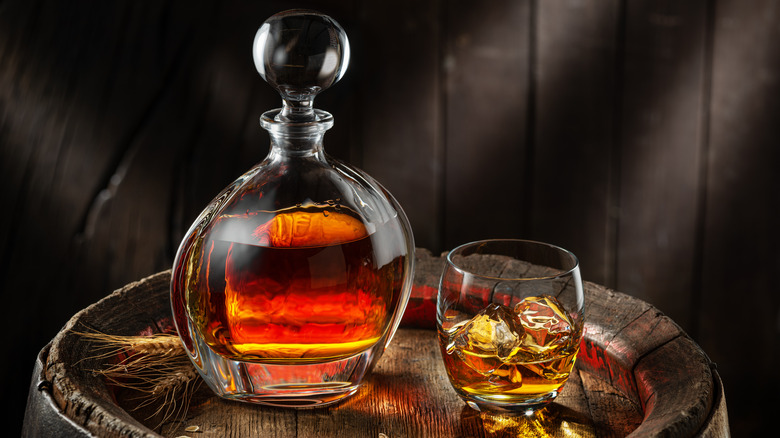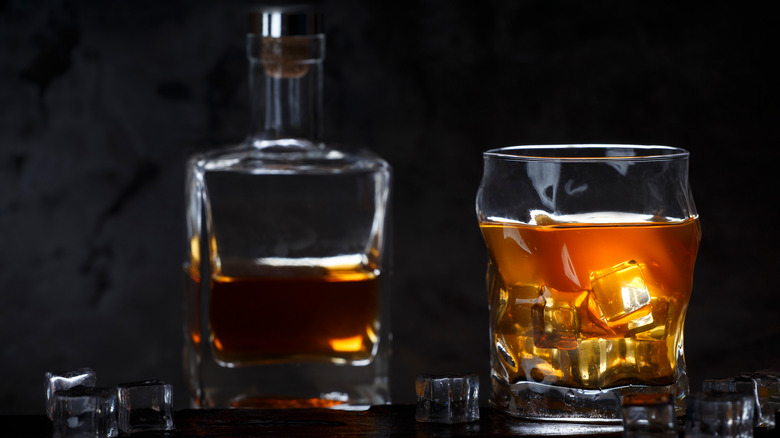Why You Can't Keep Your Best Whiskey In Its Original Bottle
If you've been delaying sipping that special bottle of bourbon or rye whiskey you've already opened, you might want to reconsider how you store it. Once you pop it open, time is limited before its flavor starts to deteriorate, but transferring it to a smaller bottle may help delay the change in flavor.
The reason for the change in whiskey's flavor is oxidation, the same process that can cause food to spoil, or your coffee to become stale. While your whiskey won't grow moldy or make you sick when it contacts air, its quality degrades over time, and it begins to taste different. The more air in the bottle, and the more the air contacts the whiskey, the faster the whiskey's flavor might change. By storing it in a smaller bottle or decanter, you'll reduce the amount of space for air in the bottle, thus limiting oxidation and extending the life of your high-quality whiskey.
The type of container you transfer the whiskey to is important
Of course, it's not advisable to transfer whiskey to just any container. First, you'll want to use glass, if possible, to avoid potentially imparting other flavors from materials like metals or plastic. Also, ensure that the bottle has a tight-fitting cap or cork-style top to prevent air from getting into the bottle. Finally, consider the size of the bottle, ensuring it is smaller than the original so you can achieve the goal of lessening the amount of air in the bottle.
Storing the whiskey in a smaller bottle may reduce oxidation, but it doesn't completely halt the process. Therefore, to enjoy the flavor of the whiskey the most, you shouldn't let an opened bottle sit for too long. Some recommend consuming an open bottle within two months, while others suggest it may retain its flavor for up to six months.
Other ways to preserve your whiskey
Besides transferring your whiskey to another bottle, there are a few other ways to help it retain its flavor. First, store the whiskey in a cool spot where the temperature typically remains constant, as temperature fluctuations can damage it. However, avoid storing whiskey in a spot that's too cold, like in the refrigerator or freezer, as this can affect its flavor and cause it to become cloudy.
If you haven't yet opened your bottle, or if you're choosing not to transfer it to a new bottle, be sure to store it standing upright. Tilting the bottle can bring the whiskey into contact with the cork, which can lead to the cork's degradation. This means you risk losing some of the whiskey to evaporation, or the cork could eventually become dislodged and fall into the whiskey.
Finally, although you may want to display your best bottles, be cautious about leaving them where they can be exposed to sunlight. Keeping your bottles in darker places, like cabinets, will prevent exposure to sunlight and help maintain the ideal temperature.



